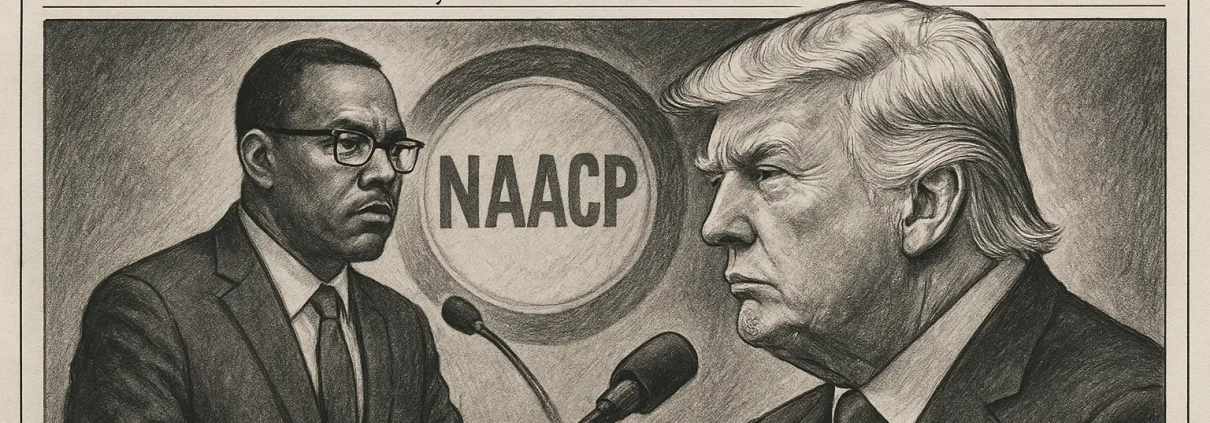NAACP’s Unprecedented Snub of Trump: A Principled Stand or a Risky Gamble?
By Esther Claudette Gittens | Photo Copyright IQ INC.
The National Association for the Advancement of Colored People (NAACP) has made the historic decision to not invite President Donald Trump to its upcoming national conference, a stark departure from its century-long tradition of extending an invitation to the sitting U.S. president. This move, a direct and forceful condemnation of Trump’s rhetoric and policies, has ignited a firestorm of debate, raising critical questions about the organization’s role in a deeply polarized nation and the potential ramifications of its principled stand.
The NAACP’s rationale for this unprecedented decision is rooted in what it deems a consistent and detrimental assault on the rights and interests of Black Americans. NAACP President and CEO Derrick Johnson articulated this position, stating that Trump’s “track record on civil rights has been abysmal.” The organization points to a litany of grievances, including what it characterizes as racially charged rhetoric, the advancement of policies that disproportionately harm minority communities, and the appointment of conservative judges who may threaten established civil rights protections. The NAACP’s stance is unequivocal: providing a platform to a figure they view as antithetical to their mission would be a betrayal of their core principles.
However, this bold move is not without its potential consequences for the venerable civil rights organization. Critics argue that by excluding a major political figure, the NAACP risks alienating a segment of the Black population that may be open to his message, however small. They contend that dialogue and engagement, even with political adversaries, are crucial for advancing any agenda. Furthermore, the decision has opened the NAACP to accusations of partisanship, potentially undermining its long-held image as a non-partisan advocate for all Black Americans. The White House has already seized on this, with a spokesperson accusing the NAACP of “sowing division.” There is also the risk of diminishing the organization’s influence in the future under the Trump administration.
The decision also casts a renewed spotlight on Donald Trump’s complex and often fraught relationship with the Black community. His supporters point to initiatives such as the First Step Act, a bipartisan criminal justice reform bill, and pre-pandemic economic gains for African Americans as evidence of his positive impact. They argue that his “America First” agenda benefits all citizens, regardless of race.
Conversely, a significant portion of the Black community and its allies point to a long history of actions and statements they view as overtly hostile. This includes his pre-presidential history, most notably the 1973 federal lawsuit alleging housing discrimination by his family’s real estate company. During his presidency, his response to the Charlottesville protests, his repeated attacks on prominent Black figures, and his administration’s efforts to dismantle affirmative action policies have all contributed to a perception of animosity. For many, his rhetoric, which often plays on racial grievances and stereotypes, is seen as a deliberate strategy to energize his base at the expense of racial harmony.
Ultimately, the NAACP’s decision to break with tradition is a powerful statement. It reflects a belief that the perceived threats to civil rights posed by Donald Trump are too significant to be ignored or sanitized by a symbolic invitation. Whether this will be remembered as a courageous act of defiance that galvanized a movement or a strategic miscalculation that marginalized a vital voice remains to be seen. What is certain is that it has drawn a clear line in the sand, forcing a national conversation about the nature of political engagement in an era of deep and bitter division.




Leave a Reply
Want to join the discussion?Feel free to contribute!